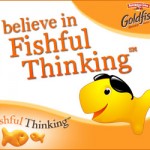 RESILIENT
RESILIENT
Resilient children are emotional It is a myth to say that resilient children are unemotional.
Resilient people need to ask for help. If you have to ask for help, is a good thing.
Resilient people act fast? Resilient people tolerate ambiguity. resilient people can analyze the situation. Fact gather before making a decision.
Who is the model of resilience? Lance Armstrong? Picking someone superhuman is not what resilience is all about. Resilient people are not superhuman.
Resilient people are not always graceful. Sometimes resilient people have missteps.
What enables kids to be resilient? Each child is different.
Praise Process not Person
Praise whole kid = You are so smart. Is this praise helpful to the child? Research shows that praise for whole child is not helpful.
Praise that leads to greater consistency is the praise of what the child did rather than the whole child. With a child who plays the piano, praise the way the child moves her fingers while playing.
Cecily, mom on the phone, shared on the #fishfulthinking seminar, that the praise by process is helpful to her. Her 8-year-old daughter teaches her that when she shows her mom her artwork she wants her mom to praise specific parts of her artwork. Her daughter taught her how to give her specific praise.
GRIT
Grit is the way you can achieve goals by not giving up. Showing Grit is a huge component for resilient kids.
GOALS
Help kids stay in a good frame of mind when setting goals.
Keep goals high, but not too difficult. But, if goals are too easy, kids don’t have challenge. Goldilocks goals: “Not to easy, not too hard”
Help your child set realistic goals.
Goal setting is a great activity for early elementary schoolers.I am working with my 6-year-old on doing his chores on a consistent basis.
EMPOWERING
Kids who know what is right with them do better. As moms we spend more time on trying to change behaviors. Kids who are empowered know their top strengths. Kids know how to use their top strengths to engage in life.
Self-esteem is all about feeling good. Kids need to know strengths. The self-esteem movement can sometimes not be helpful.
Self-efficacy — helps kids craft their strengths. Kids are willing to stretch themselves. Kids may take a hard class even in grade might be lower — a kid who is high in self-efficacy.
Building blocks of empowerment — Lots of moments during the day when moms and dads can build mastery. 4-year-old in supermarket — give child a job to get all yellow items while in shopping cart. Give them a job rather than entertaining child.
MASTERY MOMENT
We as parents can build self-efficacy in kids. Allowing a preschooler to get dressed. Give kids opportunity to make choices during the day. Kids will be more likely to have a sense of self-efficacy. Character strength. For ideas for empowering your child, go here.
EMOTIONS
Kids who are comfortable with their emotions will be better of as adults. Help kids name feelings. Love this idea! Have your child make an emotional collage of their feelings.
I listened/watched a seminar by Dr. Karen Reivich on Pepperidge Farm’s www.FishfulThinking.com program. This post is written based on notes I took during the seminar.

